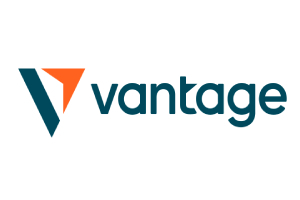Don’t invest unless you’re prepared to lose all the money you invest. This is a high-risk investment and you are unlikely to be protected if something goes wrong. Take 2 minutes to learn more
Navigating the world of digital assets begins with understanding how to store and manage cryptocurrencies securely. A crypto wallet provides essential tools for safeguarding, buying, selling, or trading these assets, each offering distinct levels of control and protection. With expanding access to web3 and decentralized applications (dapps), knowing how a crypto wallet functions—and why hardware wallets like Ledger stand out—empowers individuals to keep their investments both secure and accessible.
What does a crypto wallet actually do?
A crypto wallet acts as a gateway to access, manage, and protect digital assets on blockchain networks. Contrary to popular belief, these wallets do not hold cryptocurrencies such as bitcoin or ethereum directly. Instead, they store private keys, granting permission to access funds recorded on the blockchain. This means that controlling digital assets depends entirely on keeping those private keys safe from threats.
The role of a crypto wallet extends far beyond mere storage. Owners use wallets to send and receive payments, monitor portfolio growth, earn staking rewards, and interact with smart contracts across various blockchains. Advanced features, including NFT support, multi-chain compatibility, and integrated trading options, further enhance what modern wallets can offer to every user.
Types of crypto wallets: choices for every user
Selecting the ideal crypto wallet involves weighing security needs, convenience, and intended activities. The main categories include hot wallets, hardware wallets, cold wallets, self-custody solutions, and hosted (custodial) wallets. Each type has unique attributes tailored to different experience levels and risk preferences.
Understanding these distinctions builds a solid foundation for making informed decisions about protecting digital wealth. Some users prioritize ease of use, while others seek maximum protection from hacks and unauthorized access.
Hot wallets and hosted wallets: balancing convenience and custody
Hot wallets operate online, connecting directly to internet-enabled devices such as smartphones or computers. Their speed and flexibility make them ideal for frequent transactions, quick swaps, and seamless dapp access. Mobile apps and browser extensions are common examples that simplify portfolio management.
Hosted wallets, typically offered by centralized exchanges, place responsibility for private keys and technical infrastructure in the hands of a service provider. While this approach is convenient and beginner friendly, it limits true ownership and increases vulnerability if the provider faces security breaches.
Hardware wallets, self-custody, and true asset control
Hardware wallets generate and store private keys offline, ensuring sensitive information never leaves the physical device. Only individuals who possess the device and complete authentication steps can sign transactions. Products like Ledger exemplify this model, delivering industry-leading protection from hacks through advanced chip technology and secure elements—features that set them apart from most hot wallet alternatives.

Embracing self-custody grants full responsibility and control over the wallet and its private keys. This empowers holders to move assets freely without third-party interference but requires proactive measures around setup, backup, and recovery. Hardware wallets provide an easy-to-set-up process, intuitive interface, and reliable backup systems, making them suitable even for newcomers seeking peace of mind.
Private keys: securing and unlocking value
Private keys are central to authorizing all activity within a crypto wallet. Exclusive knowledge of the private key signifies actual possession of digital assets linked to a specific address. Losing access to the private key results in permanent loss of associated funds.
This highlights the critical importance of choosing a secure solution. Only hardware wallets engineered for offline operation, such as Ledger, create and retain private keys in isolated environments shielded from online threats. No transaction signing or key export ever occurs outside the encrypted confines of the device itself.
How do crypto wallets work to store and manage cryptocurrencies?
Storing digital assets centers on protecting private keys, monitoring balances, and interacting seamlessly with the broader crypto ecosystem. Crypto wallets present individuals with personalized dashboards displaying holdings, recent trades, NFTs, staking positions, and transaction histories—all for transparent management.
Ease of use is crucial, especially for those new to bitcoin, ethereum, stablecoins, or exploring multiple blockchains at once. User-friendly interfaces with clear menus and guided prompts transform actions like buying, selling, or swapping crypto into straightforward experiences accessible to all skill levels.
Portfolio diversification and earning opportunities
Diversified portfolios often span numerous tokens and assets across several chains or protocols. Wallets equipped with robust multi-chain support enable experimentation with new coins, NFT collection, participation in DeFi markets, and quick adaptation to changing trends—all managed from a single device. Unified reporting and portfolio tools simplify building and tracking these positions.
Earning features, such as staking rewards and liquidity provision, allow individuals to grow their crypto portfolios passively. Rather than leaving assets idle, these capabilities deliver steady returns and foster deeper engagement with emerging projects and communities.
Access to web3, dapps, and NFTs made simple
The expansion of decentralized finance and web3 applications demands wallet compatibility with various dapps, games, and marketplaces. Support for NFTs and evolving standards ensures readiness to explore new creative or investment opportunities wherever innovation arises.
Smooth integration between the wallet and these services guarantees frictionless onboarding. With just a few taps, one can mint digital art, join decentralized exchanges, or unlock exclusive services—all with security maintained by personal devices and private keys.
Security versus convenience: finding the ideal wallet fit
Security is paramount for anyone managing significant cryptocurrency holdings. Advanced encryption, strong authentication, and offline isolation guard against theft and unauthorized access. Hardware wallets provide unmatched defense, storing private keys on tamper-resistant chips protected from phishing and malware prevalent online.
Conversely, convenience-focused wallets maximize accessibility but may introduce vulnerabilities. Hosted and hot wallets can suit daily purchases or smaller assets, yet substantial holdings are best safeguarded by portable hardware devices designed for resilience and privacy preservation.
- Hot wallet: quick web access, optimal for small daily transactions
- Hardware wallet: stores private key offline, supporting robust self-custody and multi-currency management
- Hosted wallet: managed by third parties, offering less direct asset control
- Self-custody: grants total ownership of digital assets and transaction authority
- Multi-chain capability: enables seamless trading, staking, and NFT storage across diverse blockchains
Why choose a hardware wallet for crypto security?
Choosing a hardware wallet is a strategic decision when security takes precedence. Devices specifically designed for private key generation, transaction signing, and secure data storage significantly reduce exposure to cybercrime and fraud. All sensitive operations remain confined to a single environment, keeping account and portfolio details invisible to hackers or malicious software.
Key advantages include straightforward setup, intuitive navigation, and step-by-step guidance. Even those new to cryptocurrencies benefit from user-friendly features while enjoying advanced layers of encryption working behind the scenes. Ongoing updates and continuous development ensure these solutions stay relevant as technologies and potential threats evolve.
Controlling and growing digital assets efficiently
A crypto wallet equips users to oversee, expand, and fully capitalize on digital asset ownership. Prioritizing self-custody secures financial autonomy, guaranteeing only the rightful owner decides on transfers, sales, or participation in decentralized opportunities.
Modern hardware wallets take this further by simplifying the process so anyone can store bitcoin, stake for rewards, engage with NFTs, or navigate web3 safely. With support for hundreds of cryptocurrencies and scalable design, these devices enable effortless portfolio management regardless of experience level or asset size.
- Broker
- Min Deposit
- Score
- Visit Broker
- Award-winning Cryptocurrency trading platform
- $100 minimum deposit,
- FCA & Cysec regulated
- 20% welcome bonus of upto $10,000
- Minimum deposit $100
- Verify your account before the bonus is credited
- Fund Moneta Markets account with a minimum of $250
- Opt in using the form to claim your 50% deposit bonus
Learn to Trade
Never Miss A Trade Again

Signal Notification
Real-time signal notifications whenever a signal is opened, closes or Updated

Get Alerts
Immediate alerts to your email and mobile phone.

Entry Price Levels
Entry price level for every signal Just choose one of our Top Brokers in the list above to get all this free.



